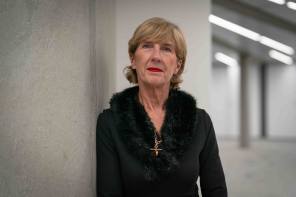

Mr Kapadia, chief executive of the company, launched the investment advisory and wealth management business at the apex of the financial crisis in 2008 after identifying lucrative opportunities in emerging markets.
He says: “I didn’t really time it, but I felt 2008 was as good a time as ever to start a new business.”
He notes that market volatility made it very challenging to launch the business, as clients often revise their investment goals during volatile periods.
“With all the volatility and markets going up and down, clients tend to become either greedy or too fearful at times,” Mr Kapadia adds.
The ongoing coronavirus outbreak has led to further volatility since the start of 2020 and posed various obstacles to financial advisers, but according to Mr Kapadia, the biggest challenge facing advisers is to stay consistent with advice.
“In such times it is far too easy for investment advisers to fall in the trap of trying to please the client. It is important that a consistent message is laid out,” he says.
Navigating the current economy
Mr Kapadia says the current crisis is not one that can be easily allowed for when making decisions.
“Covid 19 [the infection caused by coronavirus] is obviously an extraordinary crisis. It is not something that one is able to factor in while doing calculations.
Mr Kapadia adds: “Having said that, it is not the first time such crises have shown up. Crises can take all sorts of forms, but what is important is how you react to such situations, as there is no visibility of what the endgame is.”
He also warns that most investments will be subject to a high degree of price imbalances in the next few weeks.
“These kind of crises create price imbalances. These are prices which don’t make sense caused purely by the fear of missing out.”
Mr Kapadia notes that several good businesses have been mispriced and likens this to “throwing the baby out with the bathwater”.
But he also acknowledges that very good fixed income opportunities have shown up, whether in pharmaceutical or in financial services industries.
“These are all trading at extremely cheap valuations and these are all opportunities one can start looking to invest in.”
The likelihood of a recession
Mr Kapadia says it is highly likely the global economy will face a recession in 2020, but he says this will revert all recent price distortions seen in the investment sector, and financial advisers should not overly worry about the impact of a recession.
He says: “There is a very high possibility, but that is not something to be worried about – recessions and growth are all part and parcel of an economic cycle.
“During the recession, a lot of valuations that did not make sense in the past, which were too expensive, are all going to correct and become reasonable.”
He predicts that the global economy is just one quarter away from a recession “if we are not already in one.
“But the destruction of demand over this quarter and probably over the next quarter is going to have an impact.”
However, he says the impact of “the big wall of money” various countries have pumped in during recent weeks will help soothe the global economy.
The central banks of various countries have intervened and engaged in expansionary monetary policies to shore up economies, including two interest rate cuts by the Bank of England and one by the Federal Reserve.
“I believe even though we may have a recession it won’t last more than one or two quarters,” Mr Kapadia says.
Looking ahead
Mr Kapadia highlights that financial advisers should have a systematic plan that they can execute over the medium term.
“The biggest theme [for financial advisers] will be to consistently invest across solid sectors over the next six months.”
He adds that one can not rush into investment, saying there is no need, due to “a tremendous number of aftershocks expected into the system”. He says his company may wait until the crisis is over to make key decisions.
Part of Mr Kapadia’s five-year plan for the company involves looking to hire more advisers and grow partnerships with various third-party financial advisers.
Running different investment businesses has been a key part of Mr Kapadia’s career, as he was chief executive of Jermyn Capital Partners, and prior to that he ran a family business in Romania, trading commodities.
It is perhaps unsurprising that the joy clients get when markets outperform benchmarks is what Mr Kapadia considers one of the biggest barometers of success.
Sun Global Investments is currently considering taking a licence to serve retail customers, with more developments expected in the next three months.
Saloni Sardana is a former features writer at FTAdviser and Financial Adviser



